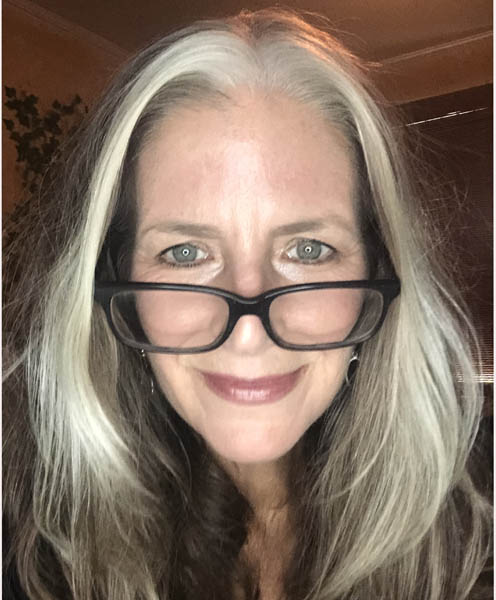Weekend before last, I did something decadent. I treated myself to a movie. In an actual theater. Alone. It’s my favorite way to see a movie, and I hadn’t indulged since before the pandemic, so this was a momentous occasion.
It did not disappoint.
Have you seen In The Heights? You should! Lin-Manuel Miranda’s first musical – before Hamilton – has been made into a dazzling big-screen extravaganza that stole my heart from the get-go. I knew I was a goner when I welled up before the film even started; Miranda and his castmates spoke directly to the audience, welcoming us back to the movies after this long, hard year. (Gulp, sniff.) Two and a half hours later, I emerged from the Cinemark still blinking back happy tears.
The movie tells the story of a few summer days in Washington Heights, the Upper Manhattan neighborhood where Miranda grew up. The characters are mostly first and second generation Latino immigrants, all striving in different ways to realize The American Dream. Usnavi owns a corner bodega, but dreams of opening a beach bar in his home country of the Dominican Republic. He’s in love with Vanessa, who does nails at the neighborhood salon, but dreams of becoming a fashion designer downtown. Kevin dropped out of school to build his cab company, but has bigger dreams for his daughter Nina, who’s just come home from her freshman year at Stanford. She loves Benny, who works for her father’s cab company and has big business dreams of his own. Keeping watch over all these dreamers is Abuela Claudia, a Cuban immigrant who plays grandma to the whole neighborhood. As the story begins, gentrification has come to The Heights, putting all their dreams in jeopardy.
So, that’s the basic set up, and it’s pretty basic. Throw in a winning lottery ticket, a city-wide blackout, and lots of Latin song and dance, and you’ve got a joyful, electrifying cinematic experience. I left the theater: A) wanting to immerse myself in Latino culture, and B) feeling great about the American experiment and humanity in general. The critics loved the movie, too, giving it 96% at Rotten Tomatoes.
So, you knew the other shoe would drop, right? Something as delightful, good-hearted and redemptive as In The Heights could not be allowed to remain uncontroversial. Not in 2021 America.
Right away, the criticism started on Twitter. Apparently, Miranda’s exuberant love song to Latino culture was not diverse enough. Within that community, there is something called “colorism.” I guess it’s akin to racism, and In The Heights now stands accused.
In a cast interview with The Root, host Felice Leon asked, “As a Black woman of Cuban descent, specifically from New York City, what would you say to folks who say that In the Heights privileges white-passing and light-skinned Latinx people?”
Leslie Grace, who is Afro-Latina herself and plays Nina in the film, responded, saying, “I didn’t realize until making this movie that I didn’t really get to see myself or people that looked like my siblings, that are darker than me, onscreen.”
I don’t get it. As “Nina,” Grace is one of the movie’s four young leads, and she has plenty of screen time. Her love interest, Benny, is played by a Black actor whose skin is quite dark. The other two main (young) characters are Usnavi – a honey-skinned Dominican (with freckles!) – and Vanessa, lighter-skinned, of Puerto Rican heritage. The large supporting cast is comprised of Latino actors of various backgrounds and skin colors.
I confess, I had to think about all this after the fact – when the controversy started – because I was so enamored of these very particular characters, and engrossed in their very American story, that their precise spectrum of skin tones didn’t register while I was watching the film.
(Forgive me, but I came of age in the era when a “colorblind society” was the goal. I’m still suffering cultural whiplash.)
Lin-Manuel Miranda immediately took to Twitter to apologize for the movie’s colorism. I can think of no other American artist who has worked so diligently and passionately to celebrate and empower people of color . . . or so often apologized for his efforts. Just last summer he was hanging his head in shame over Hamilton’s alleged failure to properly vilify the Founding Fathers. The darling of diversity casting only a few years ago, this Puerto Rican American who cast an African American as George Washington now stands accused of perpetuating white supremacy.
But at least he’s in good company. Iconic actor Tom Hanks wrote an op-ed for the New York Times recently, lamenting the fact that he’d never been taught about the Tulsa Race Massacre in school, calling the omission “tragic, an opportunity missed, a teachable moment squandered.” It was a raw, soul-searching essay in which Hanks reflected:
“My experience was common: History was mostly written by white people about white people like me, while the history of Black people — including the horrors of Tulsa — was too often left out. Until relatively recently, the entertainment industry, which helps shape what is history and what is forgotten, did the same. That includes projects of mine.”
He then went into much greater detail, firmly demanding that educators and entertainers – including himself – do better.
But like Lin-Manuel Miranda, Hanks is a living reminder that no good deed goes unpunished. For his trouble, he received a response from NPR’s Eric Deggans, who acknowledged him as a great actor, thanked him for his column, then took him to task.
“People often say columns such as the one by Hanks are published to start a conversation,” wrote Deggans. “Well, here is my suggestion: Let’s make part of that conversation how baby boomer filmmakers have made fortunes amplifying ideas of white American exceptionalism and heroism . . . And how their responsibility now lies with helping dismantle and broaden the ideas they helped cement in the American mind.”
I’m not sure what Deggans has in mind, exactly, but Hanks being the conscientious fellow that he is, I’m worried he will stop playing characters like Jim Lovell, Sully Sullenberger and Fred Rogers and start seeking roles like Simon LeGree and George Wallace. Maybe that’s for the best? Maybe we really would be better off without so many heroes on the big screen, distorting our vision of America and inspiring us to be better humans. Maybe Hanks’ “white men ‘doing the right thing’” – as Deggans put it – have had their day in the sun. Let the dismantling begin.
Or maybe, just maybe, instead of “dismantling” the idea of American exceptionalism – which has never been “white” and has always been more aspiration than realization – we could continue to pursue that idea, continue to aspire, acknowledging that we still have a long way to go, but also acknowledging how far we’ve come.
“Saying white power and privilege is at an all-time high is just ridiculous,” Bill Maher told his Real Time audience last week, referring to a recent claim by comedian Kevin Hart. “Higher than a century ago, the year of the Tulsa race massacre?,” Maher asked. “Higher than when the KKK rode unchecked and Jim Crow unchallenged?”
Maher acknowledged that “racism is unfortunately still with us,” and that its legacy of injustice lingers. “I understand, best I can, how racism singes a person’s soul so much they might see it everywhere. But seeing clearly is necessary for actually fixing problems, and clearly racism is no longer everywhere. It’s not in my home, and it’s probably not in yours if I read my audience right, and I think I do.”
Ah, the sweet sound of perspective. More of this, please.








